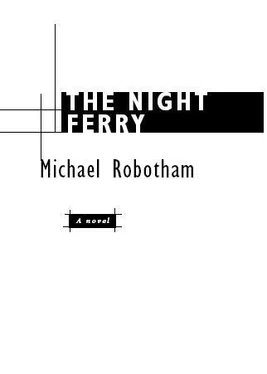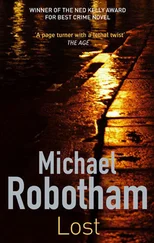“We don’t have an appointment,” I explain. “It was rather a spur-of-the-moment decision to come.”
“Adoption should never be spur-of-the-moment.”
“Oh, I don’t mean that decision. We’ve been talking about it for months. We were in the neighborhood.”
Dave chips in. “I have an aunt who lives close.”
“I see.”
“We want to adopt a baby,” I add. “It’s all we think about.”
Stella takes down our names. I call myself Mrs. King, which doesn’t sound as weird as it probably should.
“We’ve been married six years and trying to have a baby for five.”
“So you’re looking to adopt because you can’t have your own baby?”
It’s a loaded question. “I come from a big family. I wanted the same. But even though we want our own children, we always talked about adopting.”
“Are you prepared to take an older child?”
“We’d like a baby.”
“Yes, well, that may be so, but there are very few newborn babies put up for adoption in this country. The waiting list is very long.”
“How long?”
“Upward of five years.”
Dave blows air through his cheeks. He’s better at this than I expected. “Surely it can be fast-tracked in some way,” he says. “I mean, even the slowest of wheels can be oiled .”
Stella seems to resent the suggestion. “Mr. King, we are a nonprofit charity governed by the same rules and regulations as local authority adoption services. The interests of the child come first and last . Oil doesn’t enter into it.”
“Of course not. I didn’t mean to suggest—”
“My husband works in management,” I explain contritely. “He believes that almost any problem can be solved by throwing more people or money at it.”
Stella nods sympathetically and for the first time seems to consider my skin color. “We do facilitate intercountry adoptions, but there are no children made available from the subcontinent. Most people are choosing to adopt from Eastern Europe.”
“We’re not fussy,” adds Dave. I kick him under the desk. “We’re not fazed, I mean. It’s not a race thing.”
Stella is eyeing him cautiously. “There are many bad reasons to adopt. Some people try to save their marriage, or replace a child who has died, or they want a fashion accessory because all their friends have one.”
“That’s not us,” I say.
“Good. Well even with intercountry adoptions, the assessment and approval process is exactly the same as for adopting a child in this country. This includes full medicals, home visits, criminal record checks and interviews with social workers and psychologists.”
She stands and opens a filing cabinet. The form is thirty pages long.
“I was wondering if Mr. Shawcroft was here today.”
“Do you know him?”
“Only by reputation. That’s how I heard about the center—through a friend.”
“And what’s your friend’s name?”
“Cate Beaumont.”
I get no sense of whether she’s heard the name before.
“Mr. Shawcroft is normally very busy fund-raising but fortunately he’s here today. He might be able to spare you a few minutes.”
She excuses herself and I can hear her walking upstairs.
“What do you think?” whispers Dave.
“Watch the door.” Skirting the desk, I open the drawer of the filing cabinet.
“That’s an illegal search.”
“Just watch the door.”
My fingers are moving over the files. Each adoptive family appears to have one but there is no “Beaumont” or “Elliot.” Some folders are marked by colored stickers. There are names typed on the labels. At first glance I think they might be children, but the ages are all wrong. These are young women.
One name jumps out at me. Carla Donavon. Donavon’s younger sister. His pregnant sister. A coincidence? Hardly.
“Those files are confidential.” The disembodied voice startles me.
I look to Dave. He shakes his head. There is an intercom on the desk. I scan the ceiling and spy a small security camera in the corner. I should have seen it earlier.
“If you want to know something, Mrs. King, you should ask,” says the voice. “I assume that’s your real name or perhaps you have lied about that as well.”
“Do you always eavesdrop on people?” I say.
“Do you always illegally search someone’s office and look at highly confidential files? Who exactly are you?”
Dave answers, “Police officers. I’m Detective Sergeant Dave King. This is Detective Constable Alisha Barba. We are making inquiries about a woman we believe may have been one of your clients.”
The faint buzzing of the intercom goes silent. A side door opens. A man enters, in his mid-fifties, with a sturdy frame and a broad face that creases momentarily as he smiles disarmingly. His hair, once blond, now gray, has tight curls like wood shavings from a lathe.
“I’m sure there must be a law against police officers misrepresenting who they are and conducting unauthorized searches.”
“The drawer was open. I was simply closing it.”
This triggers a smile. He has every right to be angry and suspicious. Instead he finds it amusing. He makes a point of locking the filing cabinet before addressing us again.
“Now that we know exactly who we are, perhaps I could give you a guided tour and you could tell me what you’re doing here.”
He leads us into the lobby and through the French doors onto the terrace. The young woman we saw earlier is sitting on a swing in the garden. Her dressing gown billows as she rocks back and forth, getting higher and higher.
“Be careful, Meredith,” he calls. And then to us. “She’s a clumsy young thing.”
“Why is she here?”
“Meredith hasn’t decided what she wants to do. Giving up a baby is a difficult and courageous decision. We help young women like her to decide.”
“You try to convince her.”
“On the contrary. We offer love and support. We teach parenting skills so she’ll be ready. And if she decides to give up her baby, we have scholarships that can help her find a flat and get a job. We operate open adoptions.”
“Open?”
“The birth mothers and adoptive parents get to know one another and often stay in touch afterward.”
Shawcroft chooses an unraked gravel path around the southern end of the house. Large bay windows reveal a lounge. Several young women are playing cards in front of a fire.
“We offer prenatal classes, massage therapy and have quite a good gymnasium,” he explains.
“Why?”
“Why not?”
“I don’t understand why it’s necessary.”
Shawcroft has an eye for an opening. It gives him the opportunity to explain his philosophy and he does so passionately, haranguing the historical attitudes that saw young unmarried mothers demonized or treated like outcasts.
“Single motherhood has become more acceptable but it is still a challenging choice,” he explains. “That’s why I established this center. There are far too many orphans and unwanted children in our society and overseas, with too few options available to improve their lives.
“Have you any idea how slow, bureaucratic and unfair our adoption system is? We leave it in the hands of people who are under-funded, understaffed and inexperienced—people who play God with the lives of children.”
Dave has dropped back.
“I began out of a small office in Mayfair. There was just me. I charged £50 for a two-hour consultancy session. Two years later I had a full-time staff of eight and had completed more than a hundred adoptions. Now we’re here.” He gestures to Followdale House.
“How can you afford this place?”
Читать дальше












